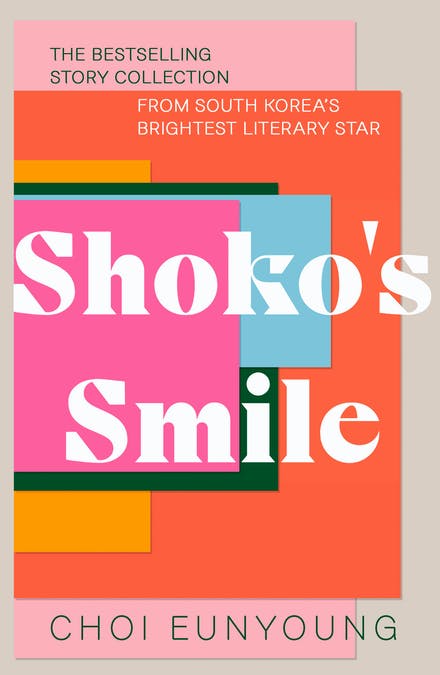SHOKO’S SMILE
Choi Eunyoung
Hachette
REVIEWED BY PETER STUPPLES
Choi Eunyoung is an award-winning South Korean writer, concentrating on the lives of urban women in the contemporary Korean world, where the traditions of the past, few of which were advantageous for women, are being shattered by the fast pace of change.

For example, Choi gives a voice to older, often illiterate, women from the working class whose social function was to marry, give birth to sons and to obey the dictates of their mother-in-law. Their grandchildren are now educated, many living and working outside Korea, unwilling to follow the hierarchies that curtailed the freedom of their grandmothers and even of their own mothers. The stories range across the history of Korea, from the occupation by Japan, 1910-1945, to the anti-communist trials of radicals in 1975, when young South Koreans were imprisoned and tortured, only acquitted in 2007, and the tragedy of 2014, when 304 passengers, most of them school children, died after the MV Sewol sunk off Jeju on the south coast.
In Shoko’s Smile, Shoko, a Japanese student, is visiting Korea on an exchange programme for the first time since such links between the two countries were resumed in the 1960s. She is caught up not only in the distrust between the two countries but also with her own ambivalent attitude to the recent history of Japan: she always wears a smile, a polite mask covering feelings she hides from everyone, including herself.
A Korean family moved to former East Germany in the early 1990s and makes friends with Vietnamese neighbours. The families grow close, drawn together by their common Asian culture in an otherwise alien land. In their German school the children discuss the history of World War 2. In a subsequent discussion, the Korean girl discovers that the grandfather of the Vietnamese family was killed by Korean soldiers fighting on the side of the Japanese, a sudden awareness that undermines the relations between former friends.
The 1975 trials of Korean young radicals are the subject of the story Sister, My Little Soonae. Hanji and Youngju relates the uneasy relationship of two volunteers living in a Christian monastery in France. Hanji, a Punjabi, grew up in Nairobi, where he trained as a vet. Youngju is Korean, a science graduate taking time out from post-graduate study in the United States. Both are disconnected from their families’ cultures. It is their sudden awareness that they will soon leave the monastery to go their separate ways that stops the development of the close emotional bonds they sense developing between each other.
In A Song From Afar, a university lecturer, Soeun, flies from Seoul to St Petersburg to visit her older mentor studying the writings of Dostoevsky. Both had been members a radical band in Seoul, that broke up soon after Meejin’s departure. The band had favoured songs in praise of democracy and women’s rights. Just before graduating in St Petersburg, the 30-something Meejin dies of a heart attack: she would, or could, never return to Korea.
These stories give insights into the recent history of a culture all around us in Aotearoa, the culture of our own Korean neighbours.
Peter Stupples, now living in Wellington, used to teach at the University of Otago












